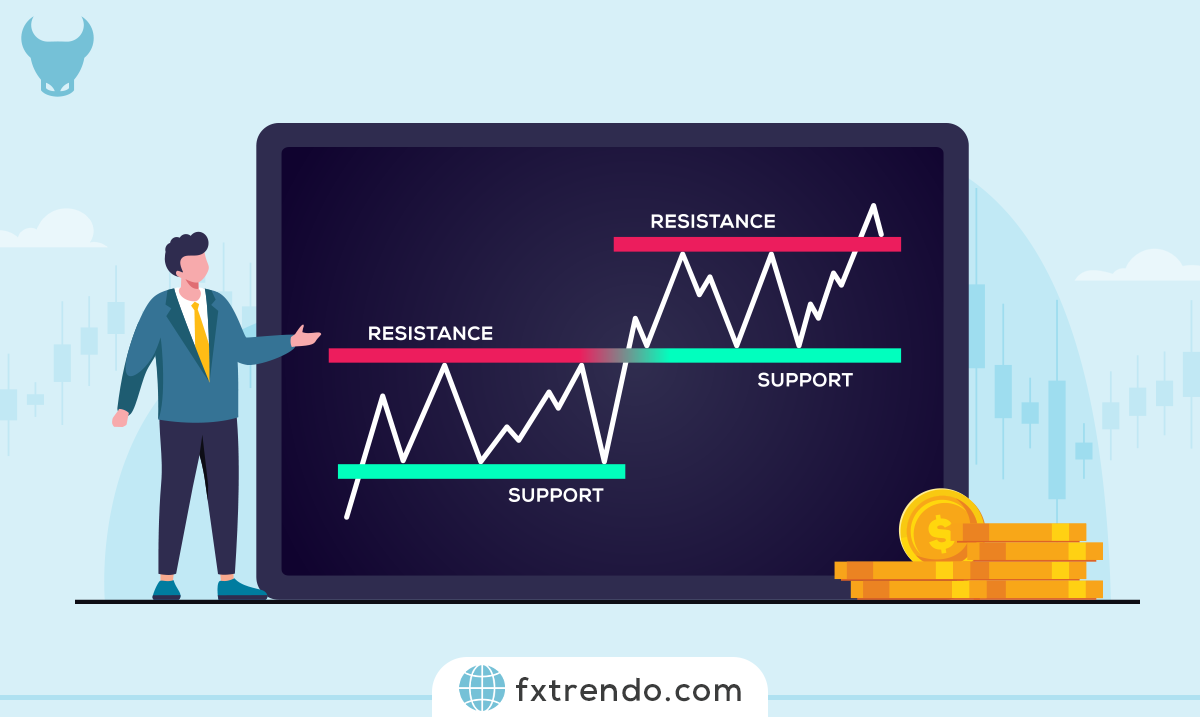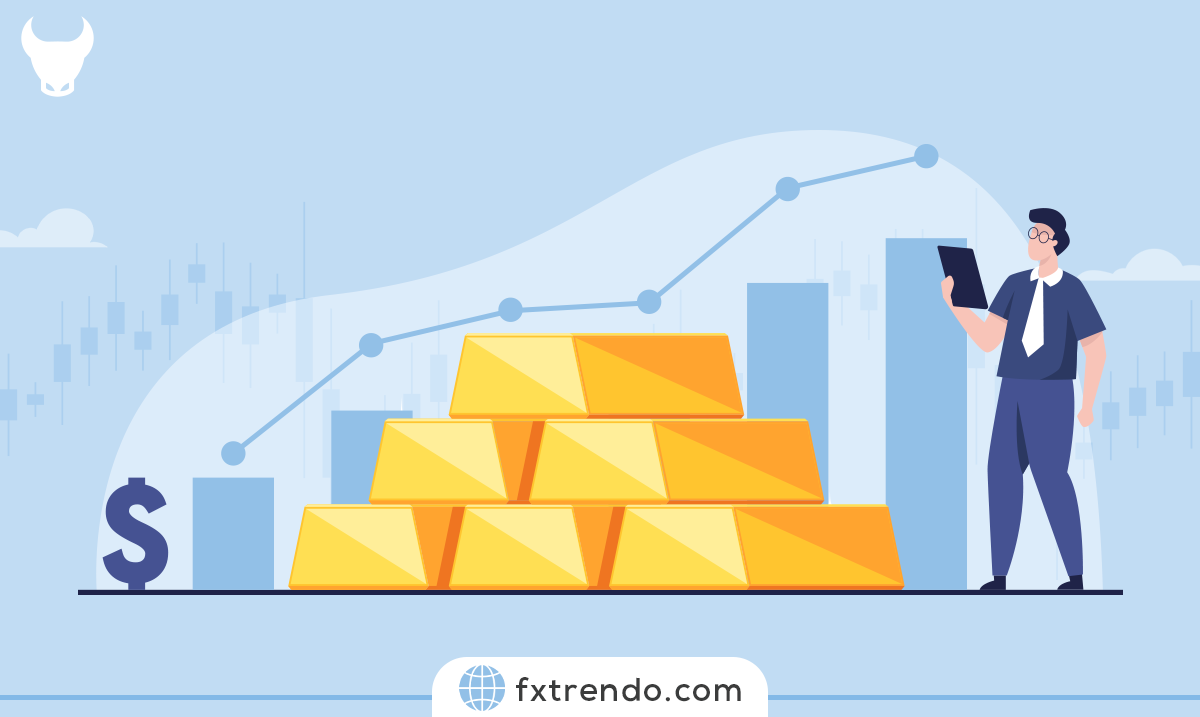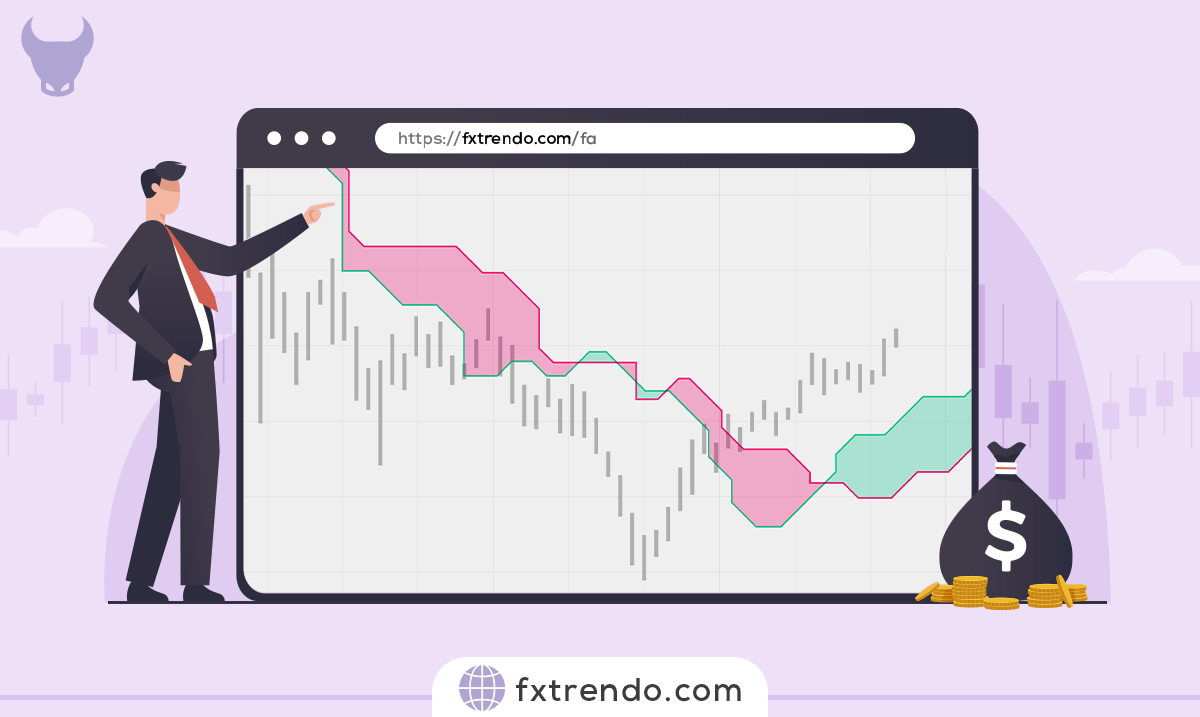One of the key questions forex traders often ask is about the reasons behind spread widening, or in other words, the increase in spread. The spread is one of the fundamental concepts in financial markets, representing the difference between the Ask (sell price) and the Bid (buy price) of an asset. This concept is particularly important in forex trading because it directly affects trading costs and can serve as an important indicator of market liquidity.
In this article, we will examine the concept of Wide Spread and the factors that cause it. Stay with us.
How Is the Spread Determined?
The spread is a core concept in financial markets and refers to the gap between the Bid price (the highest price buyers are willing to pay) and the Ask price (the lowest price sellers are willing to accept). In practice, this difference is effectively the fee a trader pays when entering or exiting a position.
In the forex market, the spread shows the price at which buyers are willing to buy an asset and the price at which sellers are ready to sell it.
For example, if the highest Bid is $9 and the lowest Ask is $10.5, then the spread is $1.5.
Generally, the larger the number of orders and the higher the market liquidity, the lower the spread becomes.
A very important point: everything mentioned above is only valid when you work with a regulated and reputable broker. A reliable broker reflects real market prices and sets spreads based on market depth and liquidity. However, with an unregulated or unreliable broker, prices and orders may be artificially manipulated—such as unfairly increasing spreads, delaying order execution, or causing slippage, all of which harm the trader. Therefore, choosing a regulated and trustworthy broker is the first condition for ensuring spread transparency and fair execution.
What Is Spread Widening and Why Does It Happen?
Every asset has a normal and expected spread. However, sometimes the spread may increase significantly. This phenomenon is called spread widening (Wide Spread)—a situation in which the difference between the Bid and Ask prices becomes abnormally large. This condition usually signals reduced liquidity and increased market volatility.
Factors That Cause Spread Widening (Wide Spread)
The most important factors contributing to spread widening include:
1) Market Volatility
Sharp price fluctuations can lead to spread widening. During highly volatile periods, traders tend to act more cautiously and cancel pending orders, reducing liquidity and increasing spreads.
2) Economic & News Events
Major economic announcements—such as unemployment data, inflation reports, and central bank decisions—can significantly widen spreads.
Similar to the previous case, increased risk leads to decreased liquidity.
3) Market Liquidity
Liquidity refers to the volume of buy and sell activity in the market.
Markets with high liquidity generally have lower spreads, while those with low liquidity are more vulnerable to widening spreads.
4) Trading Sessions
Spread levels vary throughout the trading day because liquidity is not constant.
For example:
-
During market open and market close, spreads typically widen due to low liquidity.
-
During the London and New York sessions, spreads usually reach their lowest levels because liquidity is at its peak.
Recommendation: To reduce trading costs, trade during the London or New York sessions.
Spread Widening Across Different Financial Markets
1) Forex Market
Spread widening in forex often occurs during periods of high volatility or low liquidity. Major news releases and political events can strongly affect spreads.
2) Stock Market
In the stock market, spreads commonly widen during opening and closing hours. Quarterly earnings reports and important economic news can also widen spreads.
3) Cryptocurrency Market
The crypto market is highly volatile; therefore, spreads can change dramatically. Major economic events or sudden market manipulation (often by whales) can significantly widen spreads.
How Does Wide Spread Affect Traders?
Wide spreads increase trading costs and negatively affect profitability.
Its main impacts include:
1) Higher Entry and Exit Costs
As spreads widen, the cost of opening and closing trades increases, reducing net profit.
2) Lower Probability of Profit
Since the spread is part of the cost, the market must move beyond the spread for the trade to become profitable.
3) Unexpected Stop-Loss Activation
High spreads can trigger stop-loss orders unexpectedly, causing trades to close at a loss.
Overall, spread widening means higher trading costs, lower profitability, and increased risk—mainly due to low liquidity and market volatility.
To reduce these risks:
Avoid trading when spreads are high and always use risk-management tools like stop-loss orders.
Which Symbols Experience the Highest Overnight Spread Increases?
In forex, spreads typically widen the most at night in instruments with low liquidity and low trading volume, such as:
-
Exotic pairs: USDTRY, EURZAR — due to low transaction volume and high volatility
-
Minor pairs: AUDNZD, GBPCAD — noticeable overnight widening, but less than exotic pairs
-
Low-volume stocks and indices — significantly wider spreads outside main trading hours
In contrast, major pairs like EURUSD and USDJPY experience the least overnight spread widening due to their deep liquidity.
Which Brokers Experience Spread Widening More Often?
Spread widening can occur for many reasons, but some brokers are more vulnerable due to structural or operational weaknesses:
1. Unregulated Brokers
They may intentionally increase spreads at certain times to extract more profit from clients.
2. Brokers With Weak Liquidity Providers
Without strong liquidity connections, spreads widen sharply during low-volume periods.
3. Market Maker Brokers
These brokers process orders internally and are more affected by low-volume market conditions.
Signs of Problematic Brokers (regarding spreads):
-
Lack of international regulation
-
Low transparency in spread disclosures
-
Abnormally inconsistent spreads even during calm markets
-
Slow execution during low-liquidity sessions
-
Unrealistic marketing claims like “zero spread” without disclosing commissions
Which Brokers Have Less Spread Widening?
Brokers using ECN or STP execution have lower and more stable spreads because they route trades directly to liquidity providers. Their transparent pricing and access to interbank markets reduce the likelihood of spread widening. One notable broker with consistently low spreads among traders is Trendo Broker. Trendo serves over one million users worldwide, holds FSC Mauritius regulation, and is registered in Armenia, the UK, and Saint Lucia.
Key Advantages of Trendo Broker
-
Zero or near-zero spreads: Major pairs like EURUSD often show a 0.0 spread
-
Minimal spread widening thanks to advanced technology and strong liquidity providers
-
$100 No-Deposit Bonus for new users to start trading without initial funding
-
Low minimum deposit of $10, making global markets accessible
-
Advanced proprietary trading platform with high-speed execution and an intuitive interface
-
Easy deposits and withdrawals: including local methods, crypto, Visa, and Mastercard
-
24/7 professional language support
Download the Trendo Trading Platform and Trade With the Lowest Spreads and Commissions
Conclusion
In this article, we examined the concept of spread widening, its causes—such as market volatility, news events, and low liquidity—and how it appears across different financial markets.
We also highlighted the importance of trading sessions and the role of choosing the right broker, such as Trendo, in reducing trading costs and improving efficiency.
Register now with Trendo Broker and receive a free $100 bonus!









